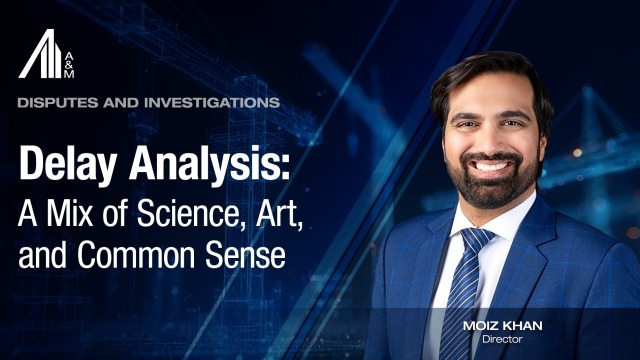Navigating Post-Closing Purchase Price Disputes
After the sale of a company, buyers and sellers often dispute calculations of working capital adjustments and amounts due under earn-outs. They may allege breaches of representations and warranties, or assert fraud claims.
The September 2011 edition of Raising the Bar, "Mitigating Common M&A Purchase Price Disputes," identified common reasons why such post-acquisition disputes occur (particularly in working capital and other balance sheet disputes) and how parties may preemptively mitigate certain risks. This article addresses the process of resolving disputes once they have arisen.
Purchase agreements commonly identify the mechanism(s) the parties must utilize to resolve various types of disputes. Frequently, purchase agreements require the parties to resolve claims regarding breaches of representation and warranties through litigation or arbitration in which the parties retain a legal expert to resolve the matters.
Alternatively, purchase agreements often require the parties to retain an accounting expert to serve as arbitrator for working capital and earn-out disputes. This article focuses on disputes in which the parties engage accounting experts as arbitrators.1
The Purchase Agreement’s Dispute Mechanism
A purchase agreement commonly requires one party to prepare an initial purchase price adjustment calculation. For example, the buyer may prepare a balance sheet quantifying closing date working capital. Typically, the purchase agreement provides the other party with an opportunity to review the information and either agree with or dispute the calculation it received. If there is a dispute, the purchase agreement typically indicates that the parties shall attempt to mutually settle the dispute. If the parties are unable to reach a settlement, the purchase agreement may indicate that they are to engage an accounting arbitrator to issue a final and binding ruling.
Each party should consider its role in the processes described above and contemplate how the opposing party may respond to its actions. A buyer or seller should be mindful of the deadlines set forth in the purchase agreement and also be aware of the provisions in the purchase agreement that specify the manner in which notice must be provided to the opposing party. As discussed below, experienced advisers can help a party to understand its rights and obligations at each step of the process.
Engaging Advisors and Selecting Arbitrators
Advisers
Although disagreements frequently occur, a limited number of attorneys, accountants and other advisers specialize in these matters. When facing a post-acquisition dispute, a buyer or seller should consider the experience any potential advisers may have in post-acquisition disputes. Moreover, a party may wish to consider whether the advisor has expertise in the technical matters of the pertinent accounting issues and in the party’s industry.
A buyer or seller may also wish to consider whether it is beneficial for the party’s counsel to engage the accountant, in case there is the ability to protect the accountant’s work product under attorney-client privilege. If there is such ability, counsel will likely inform the accountant regarding it.
Accounting Arbitrators
Once the parties determine they cannot mutually settle their dispute, they will have to attempt to agree who shall serve as the arbitrator.2 In the absence of such an agreement, the parties may require a court or other third party to select the arbitrator.
The parties should take care to select an arbitrator with extensive experience in post-acquisition disputes and expertise in the accounting matters pertinent to the dispute. The parties may choose a traditional accounting firm to serve as the arbitrator; however, some accounting firms do not specialize in post-acquisition disputes. Further, accounting firms may be unable to serve because the firm may provide attestation or other services to the buyer, the seller, or to an affiliate or subsidiary of the buyer or seller, which may create a conflict.
Alternatively, the parties might elect to engage an accountant within a consulting firm because the consulting firm has a practice that specializes in post-acquisition disputes and does not have attestation conflicts. Irrespective of the firm chosen, it is critical that the independent arbitrator have (a) extensive experience regarding post-acquisition accounting arbitrations and (b) the ability to act as an accounting expert regarding the disputes.
The Arbitrator’s Engagement Letter Should Define the Arbitration Process
Purchase price dispute resolution procedures submitted to an accounting arbitrator typically vary significantly from other forms of arbitration. Rather than being subject to preset procedural rules (such as rules governing AAA arbitrations), the parties often create unique guidelines based on agreement of the buyer, the seller and the accounting arbitrator. The accounting arbitrator’s engagement letter should identify how the dispute resolution process will proceed, including the following terms.
- Scope – The letter should identify the issues the arbitrator will resolve. This may be as narrow or extensive as the buyer, seller and accounting arbitrator agree upon. For example, the parties may grant the arbitrator the authority to resolve disputes regarding discovery or to determine whether certain disputes are procedurally valid. Regardless of the services being provided, the parties should clearly identify what items they intend the accounting arbitrator to resolve and what items are beyond the scope of the accounting arbitrator’s authority.
- Timeline and Procedures – The engagement letter should state how the parties shall present their arguments and evidence to the arbitrator. Typically, the parties each provide written submissions to the arbitrator. However, the parties should agree whether they will deliver written submissions simultaneously to the arbitrator or whether submissions will be staggered (with one party submitting first and the other party responding). Further, the parties should agree whether the arbitrator may issue information requests or conduct a hearing. Finally, the parties should identify the dates on which all arbitration procedures will occur.3
- Arbitrator’s Procedural Authority – The engagement letter should identify the arbitrator’s authority regarding certain procedural matters. The arbitrator should generally avoid ex parte communication; however, the engagement letter may provide exceptions for communications of a purely ministerial nature (e.g., billing, scheduling, etc.). Moreover, the engagement letter should indicate the arbitrator’s authority to alter the timelines and procedures. For example, the arbitrator may be granted the sole authority to extend a deadline for a party requesting additional time.
Conclusion
Post-acquisition purchase price disputes are often complex. Each dispute should be evaluated in light of its unique circumstances including the specific language within the purchase agreement. Both buyer and seller should engage experienced advisers. Such advisers may help each party minimize the potential hazards associated with post-acquisition disputes.
Footnotes
1 In some circumstances, certain disputes could relate to multiple dispute resolution mechanisms provided by a purchase agreement (e.g., a breach of representation and warranty claim regarding historical financial statements and an accounting working capital dispute). Parties should consult with legal and accounting advisers with experience in determining the proper venue(s) for the resolution of post-acquisition disputes.
2 The purchase agreement may identify a firm that shall serve as the arbitrator. However, that firm will still need to perform a conflict check and verify whether it is independent, willing and able to serve as the arbitrator.
3 Many purchase agreements provide that the arbitration process will take a specified number of days (e.g., 30 days). The arbitrator’s engagement letter will typically supersede any arbitration timeline set forth in the purchase agreement.




